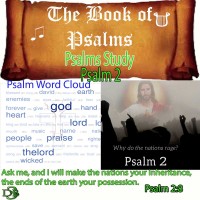

Read: Psalm 1:1-2 |
“Nothing is more irrational than irreligion” – John Trapp
An example of an opponent of Christianity (irreligion) was the Roman Emperor Diocletian (245-313 A.D.). He was such a determined enemy of religion that he persecuted the church mercilessly.
In fact, after a few years, the Emperor believed that he had defeated Christianity. To commemorate his assumed victory, he ordered a medal with the inscription: “The name of Christianity being extinguished.” He also ordered two monuments to memorialize the supposed conquest on the frontiers of his empire with these inscriptions:
“Diocletian Jovian Maximian Herculeus Caesares Augusti for having extended the Roman Empire in the east and the west and for having extinguished the name of Christians who brought the Republic to ruin.”
“Diocletian Jovian Maximian Herculeus Caesares Augusti for having everywhere abolished the superstition of Christ for having extended the worship of the gods.”
Now, obviously, the Emperor is dead and entombed. He is a near forgotten footnote in the pages of history. The emperor’s “irreligion” campaign led to an irrational belief that the death of some saints would kill God and thus Christianity. But God…, God is alive and well! He still reigns!
About
Psalm 1 and Psalm 2 are fraternal twins. Both note the blessings of the righteous and the destruction of the wicked. However, Psalm 1 focuses on the individual believer. The contrast is between the righteous and the sinner. Psalm 2 is more about all believers. It draws a contrast between the ungodly world’s acts and how we as righteous believers are protected by God.
Psalm 2 is the first Messianic Psalm. In verse 2, we find a description of Christ – “his anointed one”.
Main Message – Oppose God and perish; Surrender to Him and be blessed
David is believed to be the author and wrote the Psalm in four stanzas of three verses each:
- Verses 1-3 – The Nations conspire and rise against the Lord
- Verses 4-6 – The Lord in Heaven sustains and buffers the righteous
- Verses 7-9 – The Lord’s decree
- Verses 10-13 – Warning and wise counsel given to the rulers
The first two stanzas bring to mind two biblical illustrations – The story of Moses and Pharaoh found in Exodus and the account of the Tower of Babel found in Genesis 11.
In the story of Moses, we find that Pharaoh and his wise men were plotting against God as Moses reminded them that God said, “Let my people go!” In the end, Pharaoh and his army reneged on his agreement to let them go and pursued them only to be swallowed by the Red sea. Another example can be found in the story of the tower of Babel. Man ignored God’s command to “increase in number and fill the earth”. Instead, they conspired and joined together to build a tower as a symbol of their unity against being disbursed as God intended. But God, sitting on the Holy Mountain had a different idea. He confounded them by giving them different languages, which forced them to follow His initial command.
The last two stanzas clearly state that God will protect His own. He will break and dash those who conspire against Him like pieces of pottery.
That last few verses end with the wise counsel of serving the Lord with a holy fear mixed with the joy of the Lord. For fear, without joy, is a tormented existence; and joy, without holy fear, would be living presumptuously.
Taking a step back and looking at this Psalm in its entirety, the Messianic tone plucked in verse 2 resonates loudly through-out the text. We can overlay the text with the life of Jesus. The pagan rulers and the religious rulers of his day rejected Him and plotted against Him. But, this was His Son!
As we know, though they successfully crucified him, He rose again. Before he ascended, He left us instructions until His second coming (Matthew 28:19,20). When He returns, He will indeed dash the pagan kingdoms to pieces and take us to His Kingdom to be with Him. For, blessed are all who take refuge in Him.
Questions:
1. Discover –
A. >I have read Psalm 2 more than a few times over the years. However, I never got as much out if it as when I slowed down to read it more closely. Did you learn anything new about it in this posting? Please share
B. Do you face any discrimination because of your faith on your job? How do you handle it?
2. Develop –
A. How do you handle it when the world leaders and courts pass laws and rules that are not consistent with Christianity? How do you keep hope alive?
3. Demonstrate –
A. Does your life demonstrate your security in Christ despite your circumstances?
Psalms
Overview – Part 1 – Why, What and Who
Overview – Part 2 – Poetry, Prayer and Power
Overview – Part 3 – 5 Books in One
Overview – Part 4 – The significance of Selah
Book 1
Psalm 1
Psalm 2
Psalm 3 and 4
